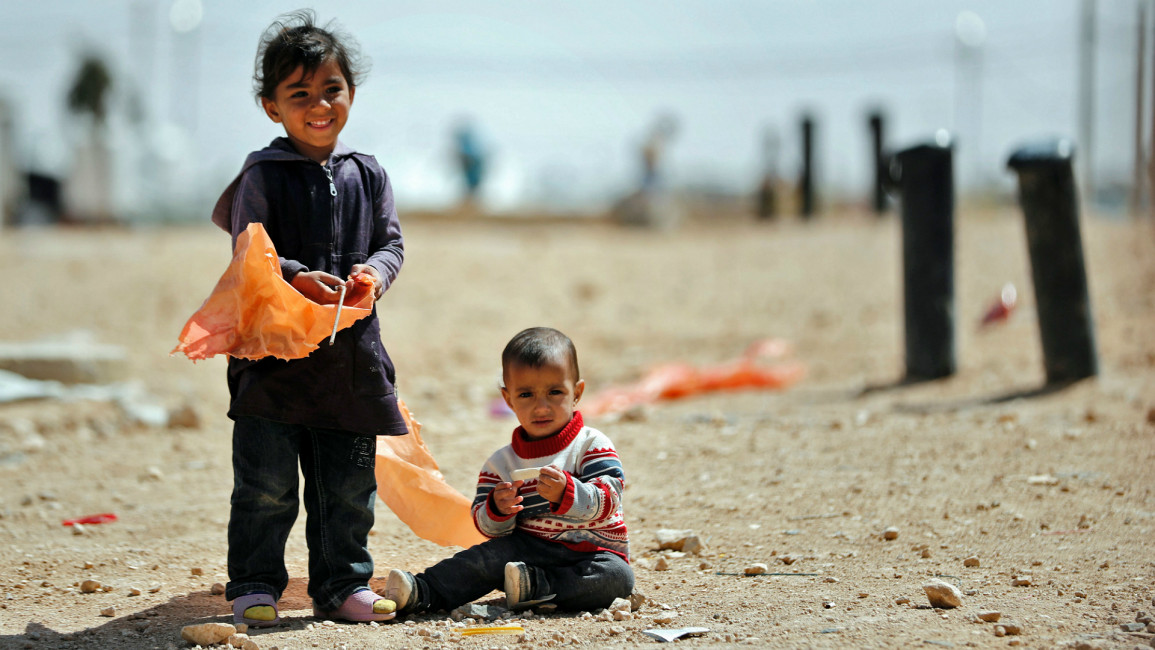Hosting Syrian refugees has cost more than $10 billion, says Jordan
The UN says that some 650,000 Syrian refugees are currently being housed in Jordan, but the government puts the figure far higher at around 1.3 million people.
|
||
| Translation: The burden the Syrian refugee crisis has placed on Jordan since the beginning of the crisis until 2017 |
In a statement released on social media, the foreign ministry said "more than $10.3 billion" (8.7 billion euros) had been spent on putting up the refugees.
That figure covered additional expenses in sectors including health, education and employment, and also extra money spent on public services and subsidised food, it said.
Jordan, which shares a 370 kilometre (230 mile) border with Syria, estimates that almost $1.7 billion will be needed to cover the refugees this year.
The kingdom, which has called for the international community to do more on the crisis, has recently come under fire from Human Rights Watch for allegedly "summarily deporting" Syrian refugees.
The group said that on average some 400 refugees were being removed each month at the start of 2017 in a move that could be aimed at preventing the violence in Syria spilling over onto Jordanian territory after several armed attacks.
Authorities insisted that any return of refugees to Syria was voluntary and that they only headed to areas in the country that are considered safe.
The UN refugee agency says 93 percent of the Syrian refugees in Jordan live below the poverty line. Around 180,000 of them are housed in two sprawling camps in the desert.
| Read also: A vital lifeline: Job fair offers hope for Syrian refugees in Jordan's sprawling Zaatari camp |
The Syrian conflict began when the Baath regime, in power since 1963 and led by President Bashar al-Assad, responded with military force to peaceful protests demanding democratic reforms during the Arab Spring wave of uprisings, triggering an armed rebellion fuelled by mass defections from the Syrian army.
According to independent monitors, hundreds of thousands of civilians have been killed in the war, mostly by the regime and its powerful allies, and millions have been displaced both inside and outside of Syria. Majority have settled in neighbouring Turkey, Lebanon and Jordan.
The brutal tactics pursued mainly by the regime, which have included the use of chemical weapons, sieges, mass executions and torture against civilians have led to war crimes investigations.


![President Pezeshkian has denounced Israel's attacks on Lebanon [Getty]](/sites/default/files/styles/image_684x385/public/2173482924.jpeg?h=a5f2f23a&itok=q3evVtko)



 Follow the Middle East's top stories in English at The New Arab on Google News
Follow the Middle East's top stories in English at The New Arab on Google News


